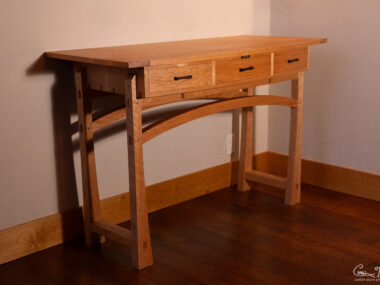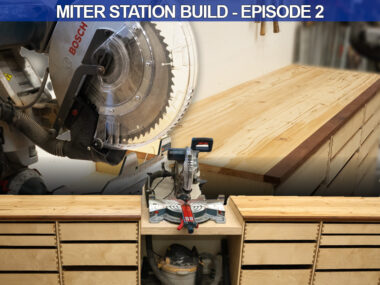Plug Bug: Battery Bus Bars
I found the volt 914 project that did a cool job on making them here. Thanks Ross for posting that information! Ross used 7 layers of 0.020” copper to make his interconnects. I also talked to Travis (who also made an EV bug) and he also went with the layered approach and used 5 layers of 24 gauge sheet (~.026 thickness). People use layers with a slight kink in the middle to allow them to stretch out when the batteries (possibly) swell up.
So, how thick do I need?
The cross sectional diameter of 2/0 wire is 0.03648”. Times pi that is ~0.115 in^2 (I’m not sure how Ross got 0.105 in^2 — maybe it was a typo). I like the idea of using 24 gauge copper to make the bars — but I might use 6 layers since: 0.026” (thickness) * 6 (layers) * 0.j75” (width) = 0.117 in^2 — definitely bigger than 2/0 wire. Or, I could use 1” wide and 5 layers, which might be easier (I think it would have been).
Or, I could just use solid copper bar stock and avoid cutting out a bunch of small pieces. I liked that idea the best, even though it might be “extra rigid”. The fear of using solid bar stock is that the cells will swell a bit and might tear apart if the bus bars don’t have some give in them. However, people use solid aluminum bus bars and don’t seem to have a problem with tearing the cells apart (as far as I can tell), and swelling is only a problem if you don’t compress your cells good enough, or abuse them by running them past their constraints. I hope to not do that, so I’m using solid stock. I also think my cells are quite well contained. If they do end up moving then I’ll have to readdress this.
I bought some 1/8″ by 1″ metal copper bar stock from onlinemetals.com. Two 96″ pieces and one 48″ piece for $114 (including shipping).
I also had to buy hardware — I stupidly thought these came with the cells, but instead they come with the bus bars. I bought the following from Bolt Depot:
Product #4815
Metric lock washers, Stainless A-2 (18-8), 8mm
Quantity: 1 box of 100
Price: $5.81
Subtotal: $5.81
Product #4778
Metric hex nuts, Stainless A-2 (18-8), 8mm x 1.25
Quantity: 1 box of 100
Price: $9.85
Subtotal: $9.85
Product #5024
Socket head screws, Alloy steel, 1/4-20 x 1/2
Quantity: 1 box of 100
Price: $5.89
Subtotal: $5.89
Product #5027
Socket head screws, Alloy steel, 1/4-20 x 1
Quantity: 1 box of 100
Price: $8.00
Subtotal: $8.00
Product #8749
Metric socket set screw cup point, Stainless A-2 (18-8), 8mm x 1.25 x 30mm
Quantity: 1 box of 100
Price: $30.19
Subtotal: $30.19
Another $76. So, it would have been cheaper to just buy the bus bars in the first place. Live and learn! I think my solid copper bars will conduct better than what the Thundersky ones do.
corbin





I found the link to the solid aluminum bus bars:
http://evie-systems.com/index.php?main_page=page&id=12&zenid=522d185fb28b7a41f111a9bc3d857c08
Those aluminum ones don’t look plated. The worry with aluminum conductors is oxidation, which then makes them non conductive. It is safest to nickel plate the Al parts that will be used as bus bars in any application.
Good point, ed! For my copper bus bars, i did put lots of noalox on the ss screws to help with any problems. copper should have less oxidation issues (i hope!)
Hi Corbin,
I also used copper bars, as it is really easy to work with. Since the batteries are all tied together and don’t move I didn’t think it would be a problem. I’m sure the 1/4″ thick is overkill, but when dealing with this much power it’s a nice safety factor. :)
I really liked your site, as a sufferer of yeast infection, I have found your site full of valuable information and advice….